During the summer of 2015 I wrote a piece at our old home detailing the 20 ways a person can come to start hating their own team. Consider this a companion piece.
In modern parlance an anti-fan is usually described as someone who is staunchly critical of a piece of work and sets out to build consensus about the dangers/absurdity/immorality of said work. The most common examples today are the anti-fans of Harry Potter and the Twilight series in the United States.
With sports, we’ve seen the emergence of the anti-fan in numerous communities across many different athletic competitions. In fact, the sports-based anti-fan network pales in comparison to any other in the world in many ways.
Still, the TV/Film/Novel anti-fan has been well covered by the U.S. media. Here are some anti-fan ploys that transcend the arts and are prevalent in the sports realm too:
Accentuate the Negative- Assigning negative values on everyone who likes the team.
Broken Base- Hating loyal fans who won’t give up on the team.
Complain, Didn’t Watch- Express opinions on things they didn’t watch.
Internet Backdraft- Negative piling on for bringing up positive aspect to the team.
Nostalgia Filter- Immediately hating something because it is new.
The key here is that it’s just as much, if not more, about the fans than it is the team/program itself. This is an important distinction that is crystallized in the Observer ads from several months ago. They were done knowing it’s a futile attempt for change but more to gain the moral high ground over other fans.
You may be thinking that the term anti-fan is derogatory but that is not the case. In reality, it is perfectly apropos and in most cases a badge of honor for anti-fans. That’s because, as the name suggests, the group is staunchly against the trappings of modern-day fandom.
For example, what are the words that jump out to you when you think of a sports fan?
Fanatic
Supporter
Passion
Cheering
These are all positive monikers when you think about devotion but there are some negative ones associated as well: rabid, blindly loyal, and overly optimistic.
What’s interesting is the relationship between the anti-fan and homer. In many ways, the former’s identity is forged by the latter’s presence. The anti-fan takes this incredibly small portion of a fan base and builds an entire culture in opposition. Further, the anti-fan constantly assigns homerism to seemingly regular fan activities–like simply attending a game–and uses that to build consensus against the homers. Look at how many people are going to the games, after all!
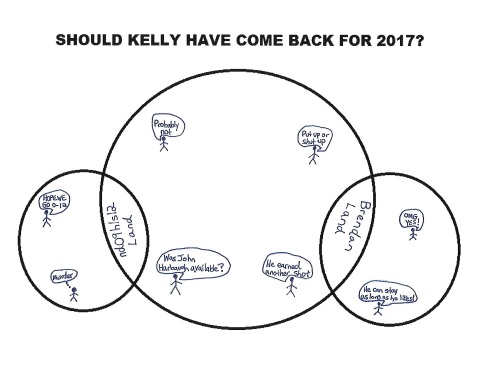
Not to scale.
This is ultimately why the anti-fan is lost, and essentially transcending sports and into something that is controlled by message board tribalism. When you stop being a fan things become less and less about winning and losing. When you start actively disliking your own team you start paying attention more and more to the people who don’t share your hatred.
If you’re curious why the controversial ndnation.com became the place that it is today it’s primarily because the bulk of the posters and moderators embraced the anti-fan philosophy for the football program many, many years ago. Take a handful of very simple things such as…
Saying, “Go Irish!”
Discussing highlight videos
Buying team merchandise
…all of this is intensely ridiculed. It’s “internet backdraft” on steroids. It’s institutionalized mockery of being a fan.
This alone has driven hundreds of people away from sites like NDN which of course creates an echo chamber, but perhaps more importantly, going back to the argument above allows ridicule of “homers” with zero reprisal. Once this happens a funny duality occurs–you can be hyper-critical without any push back AND speak for “homers” who aren’t there to defend themselves, or in some cases, just make up homerish opinions then rally against them.
“The staff is still celebrating a Pinstripe Bowl.”
“Unbelievable the things they will stoop to now.”
“We’ve officially lost all dignity.”
“It’s clear they don’t have standards.”
For the anti-fan these kinds of perverted never-been-said-can’t-be-disproven-pile-on arguments are pervasive throughout the sports community. They are layered on top of each other day after day to provide the foundation of the anti-fan agenda.
In my opinion, the world needs homers. Hope is a good thing. Even if it’s sometimes crazy there’s a jovial sense of comfort knowing in the back of your mind you could win the big game, or hire the big coach, or sign the big recruit. If that doesn’t occasionally make you smile than it’s time to hang it up and log-off forever.
The anti-fan loves nothing more than painting the homers as irrational, yet there’s at least some rationality to sticking with your team–it is sports after all. Conversely, the anti-fan is by definition irrational and therefore deeply hypocritical and sanctimonious.
At its core the anti-fan movement is led by hatred of its own team, but supposedly wrapped in a love for its own team. It’s living on both sides of the fence like a corrupt pastor. If Notre Dame ignores history and tradition that’s criticized, if they embrace it that’s living off the back of the past and attempting to distract people from the present. There’s no right, only wrong.
It’s complete self-identification through disownership. It’s a couple trashing their family on Facebook, cheering their kids to fail, and trying to convince their friends they’re still good parents. In large communities anti-fandom is unchecked narcissism patting each other on the back.
If you know someone who is becoming an anti-fan please get them help.
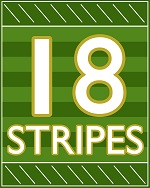
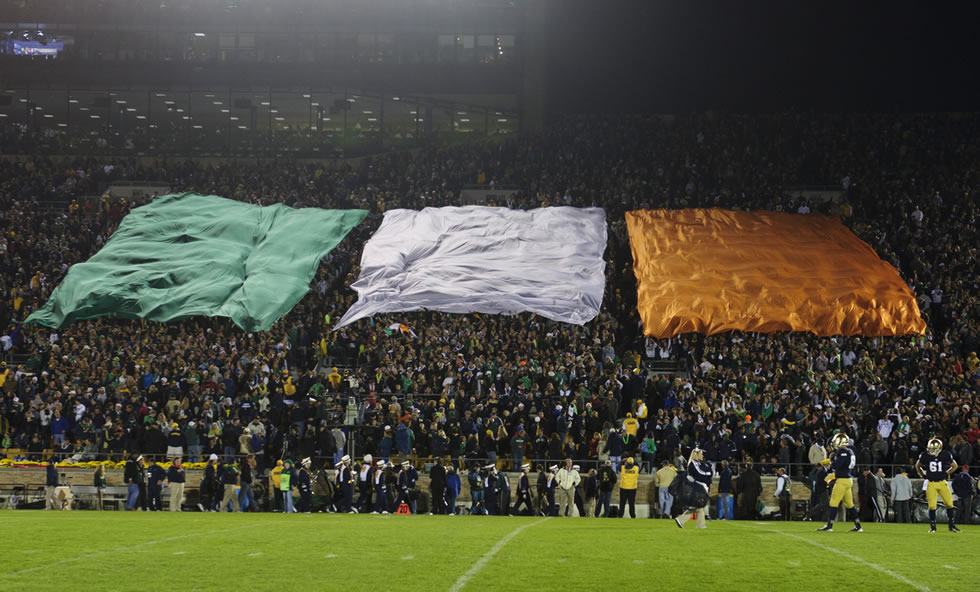

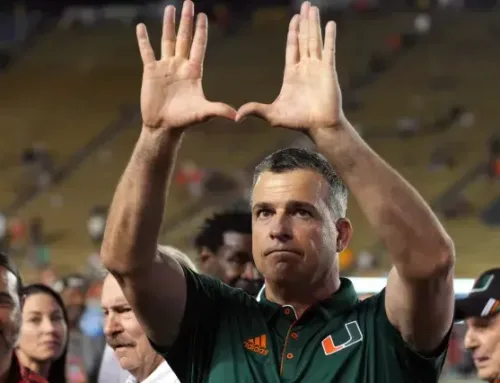
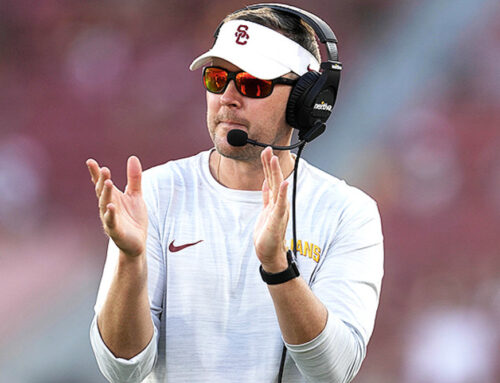
Local sports radio around here (Boston) seem to do nothing but complain about our sports teams and their management. This area has less to complain about than just about anywhere. They even have come up with nicknames for fans who call in with positive attitudes. Green Teamers (Celtics) Pink Hats (Red Sox). These radio guys can start sucking all the joy, if you let them, out of watching your team.
Yeah that’s crazy. Reminds me of Ara’s recent passing and people whispering, “There were folks who really didn’t care for Parseghian.”
It’s sad.
It’s interesting, for sure. I think that could just be talk radio in general and the contrarian nature of spitting hot takes to stay relevant. Every Monday in Pittsburgh after a Steelers loss, Tomlin is the worst coach, only succeeded with Cowher’s team, should be fired so the team can advance etc etc. So it’s the same everywhere, no matter how good a team is there’s a lot of venom from within from media and angry fans.
To me a lot boils down to trying to wrap my mind around the ego that the anti-fan has to believe so fervently they can run a team/program/athletic department better than a professional who dedicates literally their whole day to running said team. As if there are so simple fixes (delivered with such vitriol, no less) that will solve all the problems of the day. That mentality makes my head hurt.
Great point.
I think it goes beyond the narcism that says “I could do it better.” All of us have a little of that in us. That’s why fantasy football is so popular.
What sucks is that they take it so far as to assume that the people running the show are actively trying to make things worse. It is never that earnest people are giving it their best shot and it is not working out. These nut jobs believe that Kelly, Swarbrick, and Jenkins harbor a hatred for ND and are actively trying to make it worse. That’s crazy.
C’mon guys this makes perfect sense. Kelly, Swarbrick and Jenkins are just a sub-group of free masons. Did you think free masons are only after the Catholic Church? No, they go after for its football team too!
^^^ This right here.^^
I’m honored, I guess?
For sure, poking fun but all respect intended.
😉
Take your blinders off, man – he’s just trying to build hype for our inevitable pay-per-view cage match. I refuse to be suckered in. It’s going to be done on my terms!
“92 ounce gloves or the fight is off!”
Now, a slight word in my defense (again, not that I took that as a shot): I would not fit in at NDNation, and I suspect they’d view me as a wild Kellylover, or at least someone who has given up on Notre Dame and what it should stand for or whatever.
There are a variety of reasons I would say that, but in particular I just got inspired by the SBNation story about Ed Orgeron getting hired at LSU, and I realized that NDNation would go apeshit if we hired Ed Orgeron or his near equivalent. Here is a comprehensive list of people that could be hired at Notre Dame that would make the NDNation crowd happy:
– Nick Saban
– Urban Meyer
– Bob Stoops (though some on the board would, justifiably, wring hands about his players’ criminal records)
– John Harbaugh
That’s it; that’s the list. These peoples’ expectations are wildly out of whack, to the point where, as Eric gets at, they seem intentionally that way so that they can moan in perpetuity about the good old days and how Notre Dame doesn’t try hard enough and whatever and whatever else.
Just in case any NDNation person reads this post and thinks I’m being not-caring-enough when I say we are not going to hire one of those four people and it’s crazy to have that as your baseline of expectation for happiness, here are a list of jobs that are arguably (or, in the case of the first handful, inarguably) more attractive jobs than Notre Dame that in the last 5 years have hired folks not up to that tier of coach, at least on the date of the hiring: Texas, USC, Florida, LSU, Oklahoma, Nebraska, Penn State, Georgia, Miami, Tennessee, and Auburn. So, maybe it’d make sense to reset expectations a bit.
For the 18 Stripers: I’m just the Negative Nancy here because I like to keep y’all honest 😉
Great point on the coach list. I always love that argument – I don’t believe any blue blood program has successfully backed up the proverbial Brinks truck to nab a proven commodity from another blue blood. It just doesn’t happen, because there’s never enough incentive for those guys to leave. But don’t worry, it’ll work for us if we try *really* hard. And say please, everybody appreciates good manners.
At least they deleted those horrible “I’m rooting for my team to lose!” threads. The shocking thing about those was that everybody posting in them was sympathetic and/or agreeing with that garbage. An excellent demonstration of the echo-chamber toxicity of that site.
I’d like to point out, btw, that in case anyone was wondering Eric actually had this article written and scheduled before that now-deleted post (and the overwhelmingly supportive response to it) was written. We had a good chuckle about that in our writers’ chat; it was as if the community there intended to validate Eric’s point just before go-live.
Well said. I’m not someone who really understands the “self-hatred” angle of wanting their own team to lose/suffer.
Being old has mostly shown me that sports are very cyclical. Before I was born, the Packers ruled. For the first 20+ years of my life, GB sucked. Now, they’re awesome, but if Rodgers goes away, they could easily cycle back to the bottom.
The NBA is filled with teams that once were playoff powers and now sit in irrelevance, and vice versa. Baseball sees the little guys pop up their heads from time to time.
Hell, there was the “decade of dominance” where USC couldn’t touch us. I understand that if you were a student during one of the golden ages, the concept of being on a down cycle might seem “unacceptable” to you, but to go all the way to wishing losses upon your own team feels like a sickness.
That sickness feels grounded in the unchecked narcissism you reference. I was on campus for the early 90’s. I saw a lot of home football wins, and those were some of the best weekends of my life. Losses – not so much. The absolute last thing I’d do is wish that a current student have a crappier weekend because I think BK is a jerk or Swarbrick is incompetent. It is so selfish – I just can’t do it.
I am guessing these people do actually wish for others to have crappy weekends.
Great article. Question about anti-fandom. I hate twilight, which I have never read, because people would compare it to HP, which I love and is amazing. Does that make me an anti-fan or just a hater?
Just a hater in that instance I think.
Remember the good old days when anti-fans didn’t have the internet to find other anti-fans and then validate themselves. Screw the internet. I hope it loses all it’s games this year!
Crap, do we all have to actually hang out in person now???
We’re a Catholic school, no, THE Catholic school. Self flagellation is expected.
Honorary memberships in Opus Dei are a perk of ND fandom.
(Yes, I know that Dan Brown’s portrayal of the order was sensationalized.)
You all need to take off your rose-colored silices.
You get all the thumbs-up.
I really can’t comprehend why someone would go to a site to read anti-fandom about their own team. When I come to 18 Stripes, I want to read about:
1) The good, exciting things happening with ND sports that are going to make my day a little happier
2) Analysis of the actual sporting events themselves (or even analysis of people talking about the sports, i.e. the press conference breakdowns)
3) Analysis of the other happenings in the sports world
I don’t see why anybody would be interested in wasting their time going to a website that just trashes their own team all the time. When things are bad, sure, analyze the badness. After a loss to Navy, sure, post one article about how you’re going to go burn a Brian Kelly effigy; but then follow that up with a breakdown of what happened (or just skip ahead to a preview of next week’s game). I’m not a fan of ND to make myself sad or angry. I’m a fan of ND because some of the incredible memories generated by those sports teams during my lifetime. I think back on Golden Tate jumping into the MSU band a lot more than Matt Leinart getting pushed across the goalline. And I sure as hell don’t want to sit around rehashing the disappointments day after day. What’s the fun in sports if you can’t enjoy the good times?
I really liked the first iteration of this(I actually used the goalpost movers argument profusely last season on the Cowboys SBN site and they ended up writing their own version and linking yours) and this one is a great addendum to it. I will say, though, that I think the sports and fan world needs both. We all bemoan NDN and ridicule it as the black pit that it is but I think it does serve it’s purpose.
We need perspective on our teams because without it, we are all just Pollyanna blind faithful who never question any action by the team or administration. Haters, as atrocious a life as they must lead, do help to balance us out and keep us grounded. That being said, when such a sheer volume of haters coalesce like they do at NDN it does become a bit overwhelming, but I’m happy for the anti-fans that we have in our group. Helps bouy some of our more over-exuberant compatriots.
I appreciate that NDN keeps all the crazies in one place (mostly). We don’t have to listen to 99% of their garbage simply by avoiding that dump.
It’s like they are the Empire (of stupidity) hanging out on their death star, and this place is the a thriving rebel base.
I guess that makes ACROSS Darth Vader and Eric as Luke Skywalker
…no let me change that… ACROSS can be Jabba the Hut, and Eric can be Princess Leia in that skimpy little dress. Much better.
Geeeez!
“The staff is still celebrating a Pinstripe Bowl.” – I still am, that was an awesome win!
“Unbelievable the things they will stoop to now.” – I’m ok with Bob Stoops
“We’ve officially lost all dignity.” – Did we have any to begin with?
“It’s clear they don’t have standards.” – I have standards in that I expect fans not to act like whiny turds.
I just can’t get my head wrapped around the concept of it. Being a fan itself is a waste of productive time, but putting the time and effort into being an anti-fan? What a colossal waste of time and energy.
I would just stop following the team.
Great article Eric.
BrendanLand sounds lovely. Are any lots left for sale?
Haha. Big rock candy mountain.
I have not read the comments but I want to say something, which I know is rare for me on this site. I absolutely love Notre Dame athletics, and yes especially football. Probably to much. I have not been able to watch a live game in years due to my anxiety when they play (yes I have a very serious anxiety disorder). So, I DVR the games and watch them after the fact if I feel I can handle it, that does not just mean wins though. It makes me truly sad when people that claim they care about ND football act so negatively to other fans for showing there love for the Irish, however that may be. That could be because my fandom makes it difficult to enjoy a live game and I would hate to see how the anti fan would perceive me.
I will say this much. I always believe we have a chance to win and focus on the positives going into every game yet temper my homerness(?) with the understanding that we can certainly find a way to lose any game as well. But that’s football, right? That’s why I like coming to this site, because most people here are hopeful but reasonable. I see honest to goodness fans here, for good and bad seasons. thanks for all the great articles and although I very rarely speak up, I am usually here reading what everyone says and I enjoy it all.
GO IRISH!!!!
7 more days! Pass the Everclear Koolaid jello shots!
It has been distressing to watch the descent of the majority of posters on the Rock’s House page into their slough of anti-fandom. Glimpse is a better word for me in the past few years as it has become increasingly painful to read even a little of that poisonous brew of negativity and vitriol.
Why distressing?
(1) Because those folks all started out as fans. They all had (like us on this site) reasons to be attached to Notre Dame and its football team.
(2) Because the folks who run NDN actually provide very useful services to fandom. Linking all those articles and videos and podcasts is useful — if 18 Stripes were able to do the same I would probably never go on NDN again. I also like that they do that for other sports than football.
So how came to pass this truly sad tale of once true blue and still productive fans becoming the antithesis of good fans?
Beyond the reasons adduced to in all of your all’s typically thoughtful and useful posts, I would add two more:
— negativism. Humans naturally tend to fall into glass half full folks and glass half empty ones. Rock’s House increasingly became a haven for whiny, fault seeking, and above all grumpy guys.
— arrogance. You could see this coming a long time ago with how they used the Cartier Field board. And that went hand-in-glove with how they increasingly treated those who were not sharing their own analyses and perspectives. And then when they stopped linking to the former OFD…
Let that be a cautionary tale for us . We all need enough humility to avoid the inner Mike Caffey that lurks in the deep recesses. But (being like most of you, a pretty much incurable optimist) let me say “there is good in him, Leah — I can feel it. He can be brought back from The Dark Side.” (Though it cost Luke a hand it worked out.)
The advantage as pointed out above is that all these sourpusses have walled themselves into their own ghetto. Now all we need to do is figure out a way to mirror finding all those articles…
That could be done here. Wasn’t that old weekly post at OFD called “Hitting the Links” with a picture of Ty? We just need More Noise to be drafted into the writer’s group at 18 Stripes.
I also used to enjoy the old Black Eyes/Feathers in the Cap article
Good idea, CC, wrong guy, I have no skill set for linking things — except in the higher cause of linking ideas of course…
I just say God forbid if NDN ever goes down. Those guys will start finding their way to here and other sites that share our disdain for them. I’m glad to keep them behind the NDN wall and away from us, for the most part.
They could always head to TOOS
Don’t worry, I’m pretty sure NDN is all securely backed up, as carvings on the walls of caves somewhere out west.
Thank you for the timely reminder as the football season start. As a lifelong athlete, I feel that athletics holds an important place. But it is the striving, not the achieving, that brings it meaning. I have watched teammates who are juggling very successful careers also invest the time and effort to train to make it to the world championships and I have found that very inspiring.I have seen many of them come very close to qualifying but fail, then lick their pride and wounds and try again. I want all our ND teams to win but just as important to me is that they do things the right way and keep the right perspective. I am not after a “win at all costs” culture, but rather a university culture where doing things right and developing character for later in life matters as much as winning. Striving for excellence is important to all ND students. One of the things I love about ND athletics is how some of our very best and brightest are able to juggle classroom and athletics and succeed greatly at both. When I look at an Elizabeth Tucker (NCAA Woman of the Year) or Anna Kottkamp (ND Valedictorian 2015) or Leigh Kiefer (Olympian and NCAA National Champion) I see student-athletes that are inspiring. I sent my brainiac kid off the ND a couple years ago, grateful to have a place in the right kind of culture. Never in a million years did I suspect that my child would become a walk-on athlete on an ND varsity team. It has made me really ponder what it means to be a Fighting Irish. Seeing my kid juggle the demands of pursuing excellence both in the classroom and on the field has made me love Notre Dame even more. I have met all the teammates and all their parents and I cannot say enough good things about what a difference these young people are going to make in the world. I have also snuck off to Midway Airport to say hi to our child as they pass through on the way to a competition and seen a teammate off in the corner at 10pm studying a gigantic organic chemistry book. This person was off having med school interviews this past weekend and I have no doubt they knocked the socks off the interviewers and will get in everywhere they apply. I am so grateful ND has a culture that enables walk-ons. These are the unsung heroes of the Fighting Irish, always giving their all in practice and often only seeing minimal playing time. But I know how much they contribute to team chemistry. I also feel the fans are an important 6th man or 12th man that are fully a part of the team and thus the fans’ attitudes make an impact on the chemistry. My child has also benefitted from Monogram Club alums who have willingly given their time to current students to help mentor them in career… Read more »
I agree that rooting for your team to lose is ridiculous. If you want to call for the coach to be fired after a couple of losses, fine, but wait until those losses actually happen to do so.
One word in defense of the anti-fan, though: as we all know, ND’s winning % from 1996-2016 has been 60%. In the previous 20 years (1976-96) ND’s winning % was 71%. The program has declined in quality, and I think especially among a certain sort of older fan who came of age in the 70s or 80s this leads to frustration that releases itself in this way. I can’t say the frustration is unjustified, even if the way it is released is unjustified.